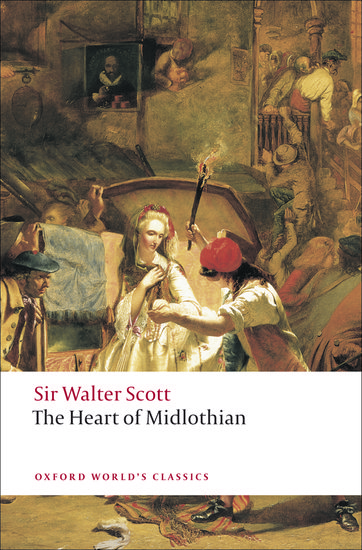This month’s Oxford World’s Classics reading list celebrates St Andrew’s Day by highlighting some of the great Scottish classics we have in the series. From the gothic tale of Jekyll and Hyde to Burns, and the philosophy of David Hume, there is hopefully something for everyone here. But have we missed out your favourite? Let us know in the comments.
Selected Poems and Songs by Robert Burns
No list of Scotland’s classics is complete without the Scottish Bard, Robert Burns. A lot of the work he produced is known around the world: it’s lyrical, acerbic, bawdy, and democratic. This edition of his selected songs and poems presents his work as it would have been first encountered by his contemporary readers by presenting the texts in the contexts in which they were origianlly published. His most famous pieces are here – Auld Lang Syne, To a Mouse, Tam O’Shanter – along with other, lesser-known works. It also contains letters, and a glossary of Scots words.

Although Mrs Oliphant moved to England when she was 10, she was originally from Midloathian and had lasting pride in her Scottish ancestry. In Hester, Catherine Vernon has risen to power in a man’s world as head her family’s bank. She thinks she sees through everyone but there are two people who resist her rule. One is the eponymous Hester, a young relation with a personality just as strong as Catherine’s, and as determined to find a role for herself.
The Man of Feeling by Henry Mackenzie
Robert Burns said that this was “a book I prize next to the Bible”. Harley, the hero, helps the down-trodden, loses his love, and fails to achieve any worldly success. The novel therefore asks a series of important questions that are just as relevant today as they were at the time of the novel’s publication in the 1770s: what morality is possible in a complex commercial world? Does trying to maintain it make you a saint or a fool? And is sentiment merely a luxury for the leisured classes?
The Private Memoirs and Confessions of a Justified Sinner by James Hogg
This masterpiece is a rivetting account of murder, amorality, and a man’s descent into despair and madness. A young man, ‘an outcast in the world’, tells the story of his upbringing by a heretical Calvinist minister who leads him to believe that he is predestined for salvation and is therefore above the moral law. Falling under the spell of a mysterious stranger who bears an uncanny likeness to himself, he becomes a serial murderer.
Selected Essays by David Hume
Hume, a philosopher, economist, and historian, was born in Edinburgh in 1711. His philosophy rejected the possibility of certainty in knowledge, and he agreed with John Locke that there are no innate ideas, only a series of subjective sensations, and that all the data of reason stem from experience.
The Heart of Midlothian by Sir Walter Scott
This is regarded as one of Scott’s finest works. The Heart of Midlothian of the book’s title refers to Tolbooth prison in Edinburgh, and it is right at the core of this tale set around the 1736 Edinburgh riots. The people are infuriated by the actions of the Captain of the Guard and when news that his death has been reprieved by the distant monarch reaches them, they resolve to take their own revenge.
The Strange Case of Dr Jekyll and Mr Hyde by Robert Louis Stevenson
This short novel, published in the 1880s, was an instant classic. It was a Gothic horror that originated in a feverish nightmare, whose hallucinatory setting in the murky back streets of London gripped a nation mesmerized by crime and violence. The respectable doctor’s mysterious relationship with his disreputable associate is finally revealed in one of the most original and thrilling endings in literature.
Macbeth by William Shakespeare
The Scottish play! Dark and violent, Macbeth is also the most theatrically spectacular of the Shakespearian tragedies. Indeed, for 250 years it was performed with grand operatic additions set to baroque music. It dramatizes the corrosive psychological and political effects produced when evil is chosen as a way to fulfil the ambition for power. But why is there the superstition around saying the play’s name in the theatre? Apparently, it is down to the idea that Shakespeare used “real” spells in his text, purportedly angering the witches and causing them to curse the play. Thus, to say the name inside a theatre is believed to doom the production, and even cause physical injury to the cast members.
Subscribe to the OUPblog via email or RSS.
Subscribe to only literature articles on the OUPblog via email or RSS.
Image credit: Margaret Oliphant by Frederick Augustus Sandys (1829-1904) [public domain], via Wikimedia Commons.




An excellent list. I’ve read all except Burns and Scott’s titles. I think that John Galt’s novel ‘Annals of the Parish’ would make it onto my shortlist. It’s a marvel. The narrator is the rather serious and somewhat self-important minister of the parish who doesn’t realise just how funny and self-revealing his account of the goings on in his parish is.